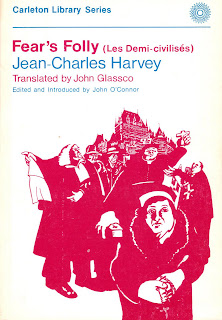
I arrive today in New York, my first foray into post-Bush America (until Jeb, that is). It's been several years since I last visited the city and, as expected, much has changed. Friends have left, taverns have closed (coincidence?) and Times Square is more offensive than ever. Many of the used bookstores I once frequented are gone – killed, I suppose, by the internet. And yet, the Strand has expanded. Go figure.
Always interesting to look for Canadian literature in the United States. There's something fairly Dickian in coming across a title one knows so well wrapped in a dustjacket that is utterly foreign. And then there are those works that have been given a different title for the American market; Richler's The Incomparable Atuk, known to Americans as Stick Your Neck Out, comes to mind. In the United States, Nino Ricci's Lives of the Saints is The Book of Saints, and The Selected Stories of Mavis Gallant is sold, misleadingly, as The Collected Stories of Mavis Gallant. A more recent title change involves Lawrence Hill's acclaimed The Book of Negroes, published as Someone Knows My Name south of the border. The author wrote about the rechristening, prompted by a nervous New York editor, in 'Why I'm not allowed my book title'. I spoil nothing by revealing that he concludes with a question: '...if it finds a British publisher, what will the title be in the UK?' The answer: The Book of Negroes, published earlier this year by Doubleday UK.
While the Brits kept the title, they adopted the oh-so-gentle image used by the Americans, which I find reminiscent of McClelland & Stewart's dull and dusky fin de millénium dustjackets (see No Great Mischief). I much prefer the frank Canadian cover. This is, after all, a story of slavery, struggle, savagery, revolution and war.

Related post:










